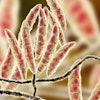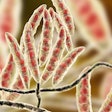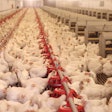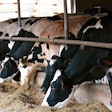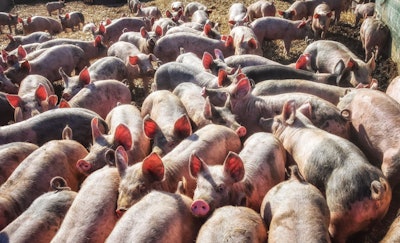
After a period of freedom from African swine fever (ASF), the disease has been detected again in Bhutan, Mongolia and Myanmar.
This month, presence of the ASF virus was confirmed again in the South Asian state of Bhutan. After a two-month hiatus, pigs in a backyard herd of 17 animals tested positive after three died in late August.
Based on information supplied to the World Organisation for Animal Health (WOAH), the outbreak was in a village in Trashigang. Located in the east of the country, this district borders India, and the outbreaks appear to be approximately 30 kilometers from the frontier.
In the notification, source of the infection was identified as the illegal importation of swine. However, Kuensel Online reports the source as contaminated kitchen waste. Including fresh pork from Assam state in India, the material was sold by a local man to the pig farmer.
Since July 2022, imports of live pigs, pork and pig meat products have been banned in Bhutan. The offender was fined BTN69,000 (US$830).
Meanwhile, Mongolia had been free of ASF since March 2019. However, WOAH was recently notified by the national veterinary authority that cases were found at two farms in the East Asian state since the end of July.
First to be affected was a herd of 135 pigs in Orkhon, and then another with 216 animals one week later in Bulgan. Source of the infection has not been identified. The affected farms appear to be around 50 kilometers apart, and not adjacent to the Chinese or Russian borders. Both provinces are located in northern Mongolia.
Meanwhile, ASF has also been detected again in the Southeast Asian state of Myanmar.
According to the WOAH notification, illegal animal movements, contact with wild species, and fomites may be responsible for the return of the disease. No cases had been reported since November 2021 until domestic pigs and wild boar tested positive for the virus at the end of August.
Directly affected were around 200 domestic pigs and five wild boar in a village in the eastern state of Shan. From the official report, the outbreak appears to be within about 50 kilometers from the borders with Laos and Thailand.
ASF situation in Russia’s Far East
In the Far Eastern federal district of Russia, no cases of ASF had been reported in the Amur region since March 2022.
However, the virus was detected again at the end of August in two small herds of domestic pigs, according to the latest WOAH report. Affected were herds comprising two and 33 swine in different districts. Source of the infection is unknown.
Meanwhile, a separate report from the Russian authorities records that a wild boar tested positive for the ASF virus in Primorskiy krai at the end of July.
The only other ASF outbreaks in cases in the region since May have been on two large commercial farms.
South Korea steps up ASF controls
In the south of the country, there has been a recent uptick in ASF cases in wild boar, reported Yonhap last week.
After seven new cases were confirmed in North Gyeongsang province, the agriculture ministry introduced stronger quarantine measures. This means more disinfection and monitoring at local pig farms, as well as intensified hunting and searching for affected wild boar.
So far in South Korea, the total number of ASF-infected wild boar in South Korea has reached 3,179, according to Pig & People (as of September 13). This is an increase of 70 from previous update dated August 12.
Since the country’s first cases in 2019, infected wild boar have been found in four provinces.
Including the latest outbreak that started in mid-July, this source puts the total number of ASF outbreaks on farms in South Korea at 37. No cases in this population have been reported since mid-July. Directly impacted have been a total of 130,553 domestic swine.
ASF developments elsewhere in Asia
At the end of August, Deccan Herald reported that the authorities in the south Indian state of Karnataka have set up checkpoints along the border with neighboring Kerala. Surveillance is being stepped up in the border district of Dakshina Kannada after recent ASF outbreaks in Kerala.
In the Philippines, a second state of calamity has been declared in Iloilo, according to the Philippines News Agency (PNA).
This province in the Western Visayas region has recently experienced a typhoon, which has added to the challenges of controlling an ongoing wave of ASF outbreaks.
At the end of August, the same source reported that piggeries in one town in Palawan province are being hard hit by ASF. The first outbreak in the province was on the island of Cocoro.
Comprising the large island of Palawan and a number of smaller islands in the west of the Philippines is the Mimaropa region.
Meanwhile, the Department of Agriculture has offered PHP20 million (US$350,000) for to support the post-ASF recovery of the pork sector. The funding will go to a farming cooperative in Ilocos Norte, reported PNA. Located in northwestern Luzon, the province is part of the Ilocos region.
Authorities in Thailand remain on alert to keep ASF out of the country.
Among the main concerns is smuggled pig meat, which could be contaminated with ASF virus. A total of 4.3 metric tons of this meat was confiscated in the month of July alone, reported Bangkok Post this week. It is set to be buried in landfill.
View our continuing coverage of the global African swine fever situation.
Classical swine fever cases at 2 Japanese farms
In the past three weeks, Japan’s veterinary authority has notified WOAH about two further outbreaks of classical swine fever (CSF) in domestic pigs.
Confirmed around the start of this month were cases at two farms in the Karatsu city area. This is located in Saga, a prefecture in the Kyushu region. This is the most southwestern of the main islands.
Presence of the CSF virus was confirmed firstly at a premises with 510 pigs, and the next day in a herd of around 10,800 animals.
Latest outbreaks bring to 89 the number of Japan’s CSF outbreaks since 2018, directly impacting almost 88,500 domestic swine. There have also been 1,486 confirmed cases in the country’s wild boar.
In 39 Japanese prefectures, vaccination of domestic pigs against CSF is officially recommended. Saga was not among those prefectures.
Like ASF, CSF (hog cholera) is a notifiable disease that affects members of the pig family, according to the WOAH.
Both diseases can cause devastating losses in domestic and wild populations, while not impacting human health. CSF is most commonly transmitted to healthy animals by direct contact from those infected with the virus. Despite the similar names, CSF and ASF are caused by unrelated viruses.

